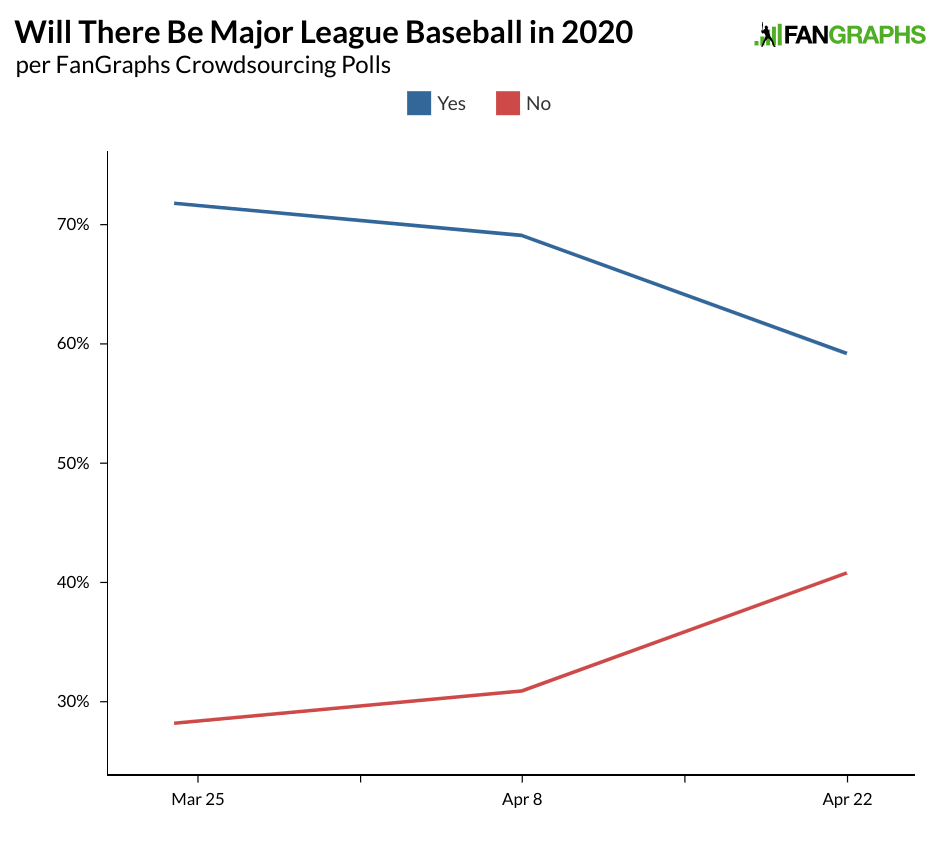Finding the Sweet Spot in the MLB Season Proposal Chaos
Three weeks ago, Jeff Passan of ESPN reported a proposal for starting the 2020 season that involved all 30 teams playing in Arizona, using Chase Field, Cactus League parks, and other area facilities. It was the first thing resembling an actual plan to be connected to MLB decision-makers, and predictably, it was full of holes. After wide-ranging skepticism and a league-issued statement of, “Alright, let’s all just take it easy,” the Arizona plan ceded ground a few days later in favor of a new proposal that explored using teams’ spring training facilities in Arizona and Florida, completely re-arranging the divisions to do so. Right on schedule, another state was added to the mix last week, when CBS Sports reported that Texas was being discussed as a potential third site for games.
Finally, MLB’s newest reported plan was brought to light on Tuesday, and it is far and away the most ambitious yet. According to USA Today’s Bob Nightengale, MLB is now discussing a proposal that would allow the season to open in late June or early July, with all 30 teams playing in their home stadiums, without fans in attendance. What would make this possible, MLB hopes, is a complete rebuilding of divisions, eliminating the AL/NL structure to construct three, 10-team geography-based divisions.
The details of this plan, and ones like it, are important in as much as they provide a window into MLB’s top officials’ thinking right now. But as we’ve seen in recent weeks, they can also change dramatically from one iteration to the next. That’s understandable, given how quickly conditions on the ground can change, and how much we still don’t know about how soon and how widely testing will be available, when states and municipalities will lift their stay-at-home orders, and when a vaccine will be developed and mass-produced. The more time MLB takes to finalize a plan, as Passan and The Athletic’s Ken Rosenthal noted in columns earlier this week, the more information they’ll have at their disposal. No matter how many reports we read now, it will almost certainly be weeks before anything concrete is established by MLB and the MLBPA. Read the rest of this entry »


